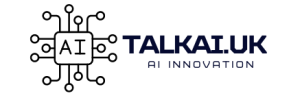The rapid growth of Artificial Intelligence (AI) is undeniably transforming various sectors, from healthcare to finance. However, nowhere is its impact more profound, and controversial, than in the realm of warfare. As AI-driven military applications become more prevalent, an important debate rages on: How can we ensure the ethical and responsible use of AI in warfare?
The Rise of AI in Warfare
Autonomous Weapons Systems
These systems, often referred to as “killer robots,” can operate without human intervention. They utilize AI to identify, target, and eliminate perceived threats. The advantages are clear: faster response times and reduced risk to human soldiers. But these systems also raise grave ethical concerns.
Surveillance and Reconnaissance
AI-powered drones and surveillance systems can analyze vast amounts of data in real-time, making it easier to identify threats and gather intelligence. While this can lead to more informed decisions on the battlefield, it can also lead to privacy infringements and other abuses.
Cyber Warfare
AI algorithms can launch sophisticated cyber-attacks, penetrate enemy defenses, and defend against hostile cyber operations. However, they can also cause unintended collateral damage in the digital realm, affecting civilians and critical infrastructure.
Ethical Concerns Surrounding AI in Warfare
Accountability and Responsibility
Who is responsible if an AI-driven weapon causes unintended harm? Is it the developers, the military strategists, or the AI itself? The blurring of these lines can lead to a dangerous accountability vacuum.
Discrimination and Bias
AI systems are only as unbiased as the data they’re trained on. If fed with skewed data, AI can perpetrate or amplify existing biases, leading to unfair, and potentially fatal, targeting decisions.
Proportionality and Discrimination
Warfare operates on principles like proportionality (ensuring the force used is proportional to the threat) and discrimination (distinguishing between combatants and civilians). Can AI truly understand and act upon these complex ethical principles?
The Human Element
Warfare is not just about eliminating threats; it’s about understanding human emotions, morals, and values. There’s a fear that over-reliance on AI may strip warfare of its human essence, leading to decisions devoid of empathy and moral reasoning.
Steps Towards Ensuring Ethical Use of AI in Warfare
International Treaties and Regulations
Just as biological and chemical weapons are regulated, there’s a growing call for international treaties on the use of AI in warfare. These would set guidelines on development, deployment, and usage while ensuring accountability.
Transparent Development Practices
Companies and governments involved in developing AI for military applications must adopt transparent practices. This includes sharing (where feasible) methodologies, data sources, and testing protocols, ensuring external vetting for potential biases and ethical concerns.
Ethical Training and Education
Military personnel, AI developers, and strategists should undergo rigorous ethical training. This will ensure that as AI systems evolve, they are aligned with globally accepted moral and ethical standards.
Implementing Kill Switches
Incorporate mechanisms to override AI decisions or shut down systems when they act outside predefined ethical boundaries. These “kill switches” can act as safety nets in situations where AI behaviors become unpredictable.
Conclusion
While the advantages of AI in warfare are undeniable—ranging from enhanced precision to reduced human risk—the ethical concerns it raises are profound. Ensuring responsible use requires a multi-pronged approach that combines stringent international regulations, transparent development practices, ethical education, and robust safety mechanisms. As we stand on the cusp of an era where AI could redefine warfare, our global commitment must be to wield this technology responsibly, ensuring it serves humanity and doesn’t become a tool for indiscriminate destruction.



